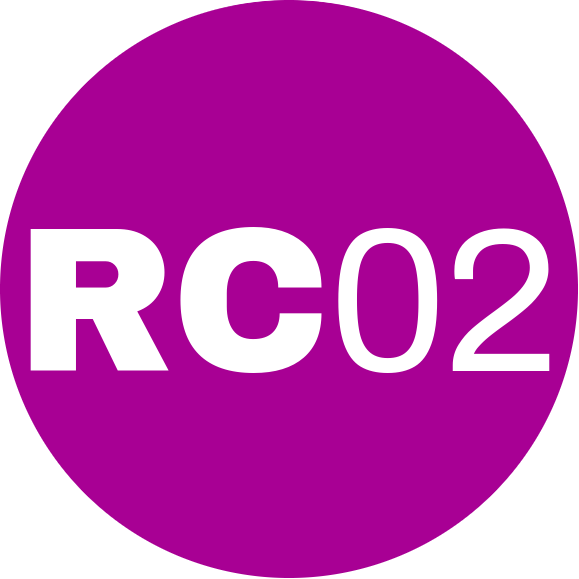Journal of Workplace Learning is now seeking submissions for its Special Issue on the topic “Knowing and Learning in the Age of Intelligent Machines: Navigating Innovation, Automation, and Human Agency in the Workplace”.
In recent years, the issue of artificial intelligence has increasingly permeated public debate and organizational life, becoming closely associated with digital innovation. Digital platforms, management tools, robots, virtual assistants, and data analysis software are becoming more common in workplaces, either replacing or complementing human action in crucial organizational processes such as recruitment, manufacturing, task assignment and coordination, customer support, and market strategy formulation.
These trends have sparked contrasting views both in public opinion and among academic scholars, echoing the juxtaposition coined by Umberto Eco (1964) between "integrated" and "apocalyptic" perspectives. Techno-enthusiastic rhetoric highlights the revolutionary potential of intelligent machines, emphasizing how these cutting-edge technologies can empower human agency in the workplace. In contrast, dystopian narratives envision a future marked by pervasive automation, accompanied by rising unemployment and deskilling. In both cases, machines are portrayed as powerful agents capable of producing disruptive effects on work, often overshadowing the underlying processes activated by these technologies. The main danger of this polarization, as in other debates about organizational and technological innovation, lies in overlooking "the more intricate, and often ambiguous, dynamics that happen between total domination and total emancipation" (Meyer, 2019: 2).
This special issue aims to address these complexities by exploring the integration of intelligent machines — designed for understanding reality and solving problems within it — into organizational life. In line with the core focus of JWL, this special issue emphasizes organizational learning and knowing dynamics that emerge in the context of intelligent machines, avoiding the prevalent oversimplifications. Specifically, drawing on a substantial body of organization studies, it advocates a processual understanding of knowing and learning, viewed as distributed, ever-changing, and ongoing (Chia, 2009; Gherardi, 2016). As done by an emergent body of organizational literature (Faulconbridge et al., 2024), this volume aims at shedding the light on the organizational and professional changes activated by these machines, that being often opaque and inscrutable (Kellog et al., 2020), attract fears and hopes of organizational actors. The special issue aims to gather robust empirical work that explores how intelligent machines - that collect vast amounts of data, make decisions, and carry out actions based on their analysis - activate organizational dynamics that involve both human and non-human actors, and mobilize complex systems of fragmented knowledge. Additionally, theoretical and methodological contributions that develop conceptual tools to explore the work performed by these machines are encouraged. To achieve these goals, the special issue invites papers that draw on and integrate insights from organization and management theory, information systems, innovation and entrepreneurship research, strategic management, public and non-profit management, science and technology studies, organizational sociology, critical management studies, and other relevant fields.
Potential themes include, but are not limited to:
Intelligent machines, knowledge, and transformations in organizational arrangements.
Cooperation and intelligent machines.
Knowledge integration and conflict dynamics surrounding intelligent machines.
Intelligent machines, organizational change, and professional transformations.
Control and resistance dynamics during the adoption of intelligent machines.
Socio-technical imaginaries of intelligent machines in the workplace.
Theoretical and methodological reflections on knowledge dynamics in the era of artificial intelligence and machine learning.
Submission:
Submissions are made using ScholarOne Manuscripts. Registration and access are available here. - Please use this link for submitting full manuscripts. For abstracts, please email Francesco.miele@dispes.units.it
Author guidelines must be strictly followed. Please see here.
Authors should select (from the drop-down menu) the special issue title at the appropriate step in the submission process, i.e. in response to ““Please select the issue you are submitting to”.
Submitted articles must not have been previously published, nor should they be under consideration for publication anywhere else, while under review for this journal.
Key Deadlines:
Closing date for abstract submission: 01/02/2025
Email for abstract submissions: Francesco.miele@dispes.units.it
Abstracts submitted must not exceed 500 words including bibliography.
Opening date for full manuscript submissions: 16/02/2025
Closing date for manuscripts submission: 01/07/2025
For details, visit https://www.emeraldgrouppublishing.com/calls-for-papers/knowing-and-learning-age-intelligent-machines-navigating-innovation-automation-and

